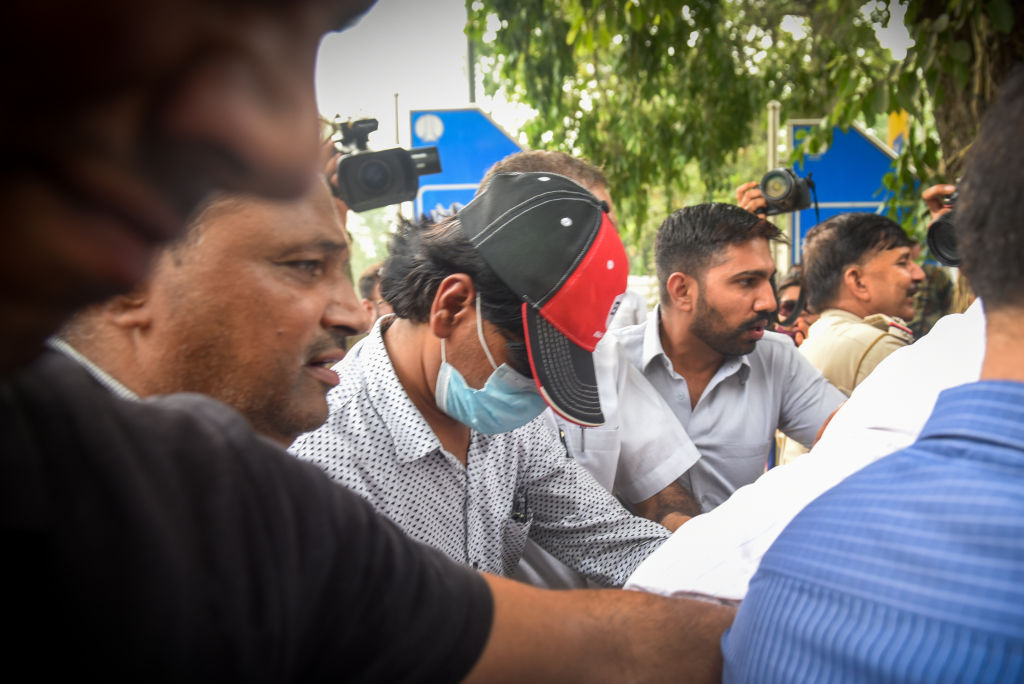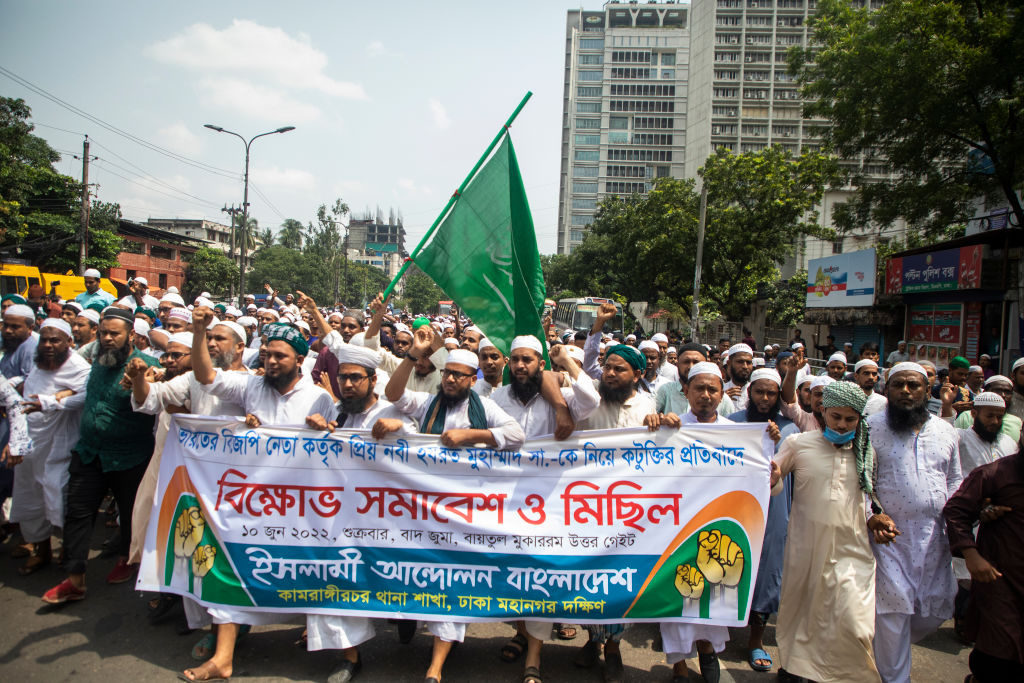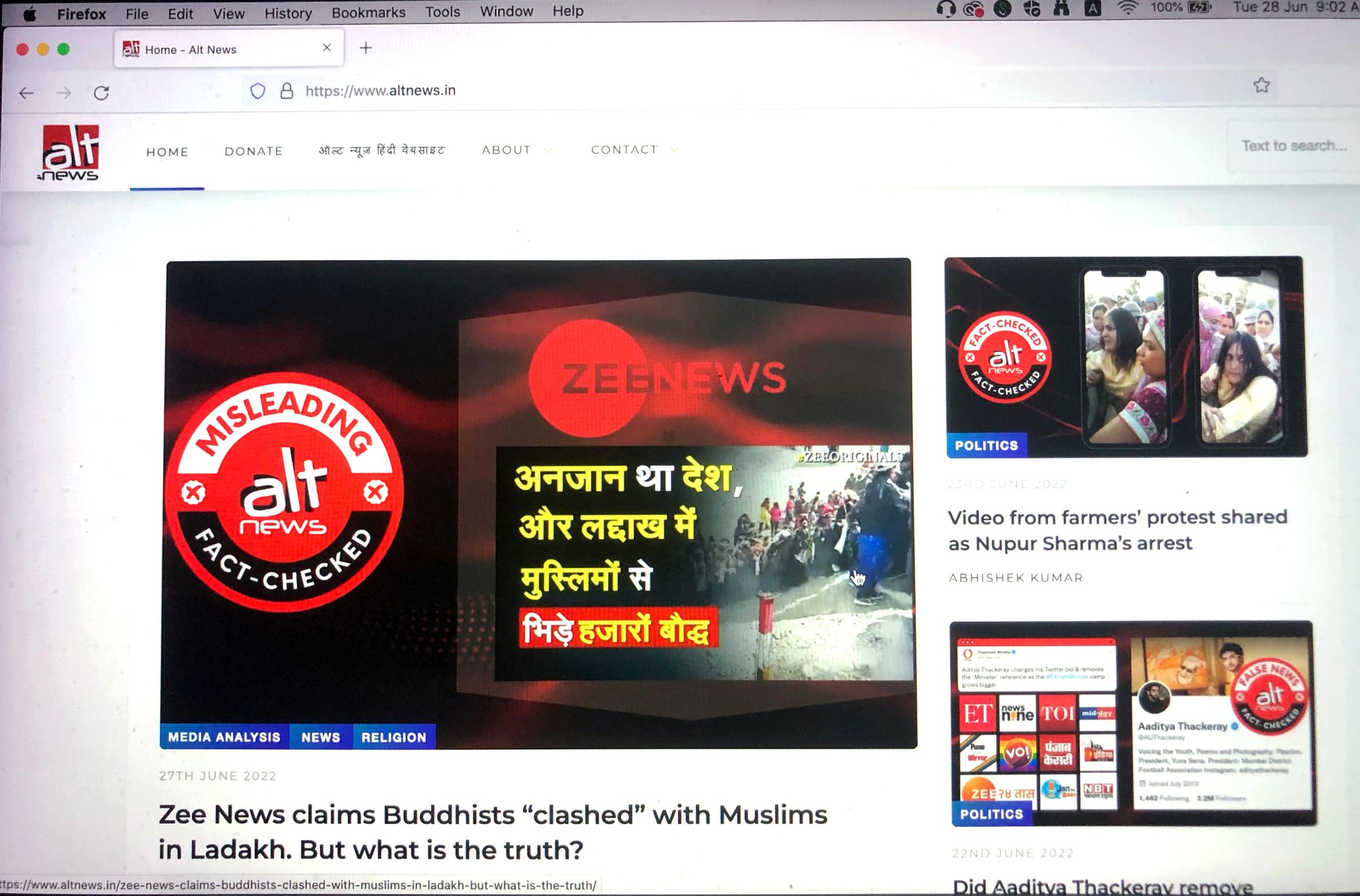
MUMBAI, India – Arrested for an innocuous meme he tweeted four years ago, more than a hundred policemen surrounded Mohammed Zubair when he was brought before a magistrate.
“It was a message, making an example of me, that they could treat you as a criminal,” he tells TIME.
Independent journalism is being made a de facto crime in what is supposed to be the world’s biggest democracy, with Zubair the latest offender. The 40-year-old co-founder and editor of fact-checking website Alt News was arrested on June 27, summoned to New Delhi from Bangalore, handed a police report on a supposed complaint by an anonymous Twitter account that Zubair had “hurt Hindu sentiments”, and told within minutes that he was being arrested for not cooperating with the investigation.
Within days, more complaints were registered in the neighboring state of Uttar Pradesh. One of them was about Zubair’s entirely accurate assertion that an image used by a rabid Hindu-right news channel was doctored.
Read more: It Isn’t Just Modi. India’s Compliant Media Must Also Take Responsibility for the COVID-19 Crisis
“By arresting me and filing multiple cases against me – three of them for an accurate fact-check – they wanted to show that they can target anybody,” Zubair says. “If you’re a Muslim journalist or a Muslim activist, or for that matter any independent journalist, you could be in trouble.”
Zubair’s three-week incarceration, before he was released following a bail order by the Supreme Court, comes amid increasing restrictions on civil liberties and media censorship by Prime Minister Narendra Modi’s Hindu nationalist government, especially against Muslims. A strongly worded order from the country’s top court may have secured Zubair’s freedom for now, but not since the 1975 Emergency — a 21-month suspension of democratic processes and fundamental rights — have Indian journalists felt this threatened, as the regime punishes critical voices.
Trust in journalism in India is at a nadir as the mainstream media mostly toes the Modi government’s line. Only a handful of digital-only news publishers have dared to cross it. Having banded together as an association of digital platforms, with Alt News as a founder member, these newly minted news organizations have been producing high-quality journalism disproportionate to their humble means.

With Zubair, India’s most influential fact-checker at the helm, Alt News has established a track record of successfully calling out the hate and disinformation campaigns of Hindu supremacists. His inputs forced police to move against the people behind an app that “auctioned” Muslim women journalists and activists. Zubair also successfully highlighted shocking videos of Hindu priests calling for war against Indian Muslims, and it was his tweet of the clip of a spokeswoman of Modi’s ruling Bharatiya Janata Party (BJP), mouthing obscenities against Prophet Muhammad at a TV show, that triggered a diplomatic row, with 20 Islamic nations condemning the comments.
Such work has infuriated the well-funded social media network of Hindu-right trolls and pro-BJP news outlets that broadcast and amplify Hindu supremacism to 700 million Indian mobile phone users, who happen to enjoy the world’s lowest data costs.
Read more: What It Feels Like to Be a Muslim Woman Auctioned Online by India’s Right Wing
With the “Arrest Zubair” hashtag trending for weeks following the controversy and violence over the comments on the Prophet, the former software engineer installed closed circuit cameras outside his home, fearing attacks by angry mobs. For the first time in his five years as a fact-checker, he feared the threats against him and his family might not just stay online. The fear of vigilante violence came on top of a sharp rise in the number of police cases against Zubair’s peers.
Following violence at a farmers’ protest venue in Delhi last year, police arrested and manhandled a freelance reporter at the site. Days later, a reporter from independent news site The Wire and its editor were booked for reporting the charges leveled against the government and police by the family of a farmer who died that day.

Pattern of persecution against media
Media organizations critical of the government’s handling of the COVID-19 crisis have faced raids by tax officials and law enforcement agencies. Last year, a video on YouTube demanding the “hanging” of journalists, including Zubair, clocked half a million views before it was taken down. It claimed that independent news websites were an “anti-India conspiracy.”
More than 150 Indian journalists have been arrested or faced government hostility for their work between 2010 and 2020, more than 40% of them in 2020 alone, finds advocacy group Free Speech Collective. The brazen police action to keep Zubair behind bars for over three weeks in frivolous cases now marks an intensified threat to independent journalists, say editors of these news organizations.
While Zubair was in custody, police collected information about Alt News donors from its payment platform and claimed that Alt News had received funds from abroad, specifically from Pakistan. Indian law requires non-profit groups to seek the government’s permission for accepting donations from abroad.
“They wanted to show they can scare people who are donating, which is how they can stop us,” said Zubair.
Read more: The Indian Government Is Silencing Critics Even As Its COVID-19 Crisis Surges
A fully crowd-funded operation, Alt News doesn’t accept foreign funds or donations, so foreign donors are anyway disabled on their payment gateway. But since organizations like it for most part depend on contributions from readers to sustain themselves, the intimidation was aimed at hurting the bottom lines of outlier media outlets offering a narrative that clashes with the one Modi’s government wants to be broadcast.
The strategy seems to be working. Zubair’s ordeal at the hands of police only deepens the climate of fear in the media industry. At a Delhi gathering after his arrest, downbeat editors spoke on the chilling effect the attacks on the media were having on newsrooms.
“Fear is being instilled in journalists not to question the government,” said Press Club of India president Umakant Lakhera. That’s terrible news for what used to be, not too long ago, one of the freest media in Asia.
More Must-Reads from TIME
- Donald Trump Is TIME's 2024 Person of the Year
- Why We Chose Trump as Person of the Year
- Is Intermittent Fasting Good or Bad for You?
- The 100 Must-Read Books of 2024
- The 20 Best Christmas TV Episodes
- Column: If Optimism Feels Ridiculous Now, Try Hope
- The Future of Climate Action Is Trade Policy
- Merle Bombardieri Is Helping People Make the Baby Decision
Contact us at letters@time.com